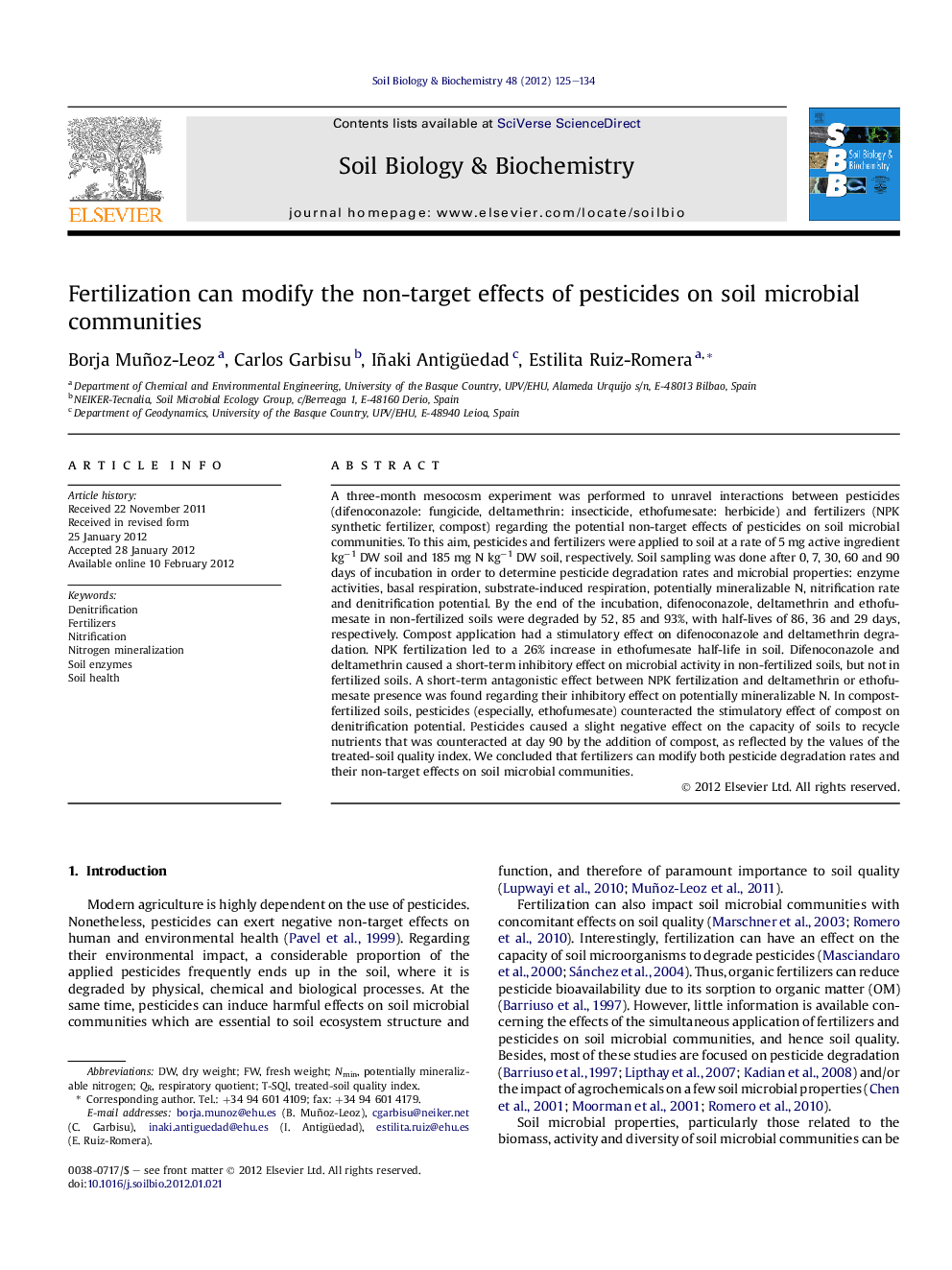| Article ID | Journal | Published Year | Pages | File Type |
|---|---|---|---|---|
| 2024941 | Soil Biology and Biochemistry | 2012 | 10 Pages |
A three-month mesocosm experiment was performed to unravel interactions between pesticides (difenoconazole: fungicide, deltamethrin: insecticide, ethofumesate: herbicide) and fertilizers (NPK synthetic fertilizer, compost) regarding the potential non-target effects of pesticides on soil microbial communities. To this aim, pesticides and fertilizers were applied to soil at a rate of 5 mg active ingredient kg−1 DW soil and 185 mg N kg−1 DW soil, respectively. Soil sampling was done after 0, 7, 30, 60 and 90 days of incubation in order to determine pesticide degradation rates and microbial properties: enzyme activities, basal respiration, substrate-induced respiration, potentially mineralizable N, nitrification rate and denitrification potential. By the end of the incubation, difenoconazole, deltamethrin and ethofumesate in non-fertilized soils were degraded by 52, 85 and 93%, with half-lives of 86, 36 and 29 days, respectively. Compost application had a stimulatory effect on difenoconazole and deltamethrin degradation. NPK fertilization led to a 26% increase in ethofumesate half-life in soil. Difenoconazole and deltamethrin caused a short-term inhibitory effect on microbial activity in non-fertilized soils, but not in fertilized soils. A short-term antagonistic effect between NPK fertilization and deltamethrin or ethofumesate presence was found regarding their inhibitory effect on potentially mineralizable N. In compost-fertilized soils, pesticides (especially, ethofumesate) counteracted the stimulatory effect of compost on denitrification potential. Pesticides caused a slight negative effect on the capacity of soils to recycle nutrients that was counteracted at day 90 by the addition of compost, as reflected by the values of the treated-soil quality index. We concluded that fertilizers can modify both pesticide degradation rates and their non-target effects on soil microbial communities.
► Half-lives of difenoconazole, deltamethrin and ethofumesate were 86, 36 and 29 days. ► Pesticide degradation rates were similar in NPK-fertilized and non-fertilized soils. ► Compost had a stimulatory effect on difenoconazole and deltamethrin degradation. ► Pesticides caused a short-term inhibitory effect on soil microbial activity. ► Fertilizers modified non-target effects of pesticides on soil microbial communities.
